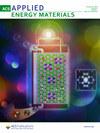Dimension reduction for Quasi-Monte Carlo methods via quadratic regression
Abstract
Quasi-Monte Carlo (QMC) methods have been gaining popularity in computational finance as they are competitive alternatives to Monte Carlo methods that can accelerate numerical accuracy. This paper develops a new approach for reducing the effective dimension combined with a randomized QMC method. A distinctive feature of the proposed approach is its sample-based transformation that enables us to choose a flexible manipulation via regression. In the proposed approach, the first step is to perform a regression using the samples to estimate the parameters of the regression model. An optimal transformation is proposed based on the regression result to minimize the effective dimension. An advantage of this approach is that adopting a statistical approach allows greater flexibility in selecting the regression model. In addition to a linear model, this paper proposes a dimension reduction method based on a linear-quadratic model for regression. In numerical experiments, we focus on pricing different types of exotic options to test the effectiveness of the proposed approach. The numerical results show that different regression models are chosen depending on the underlying risk process and the type of derivative securities. In particular, we show several examples where the proposed method works while existing dimension reductions are ineffective.

 求助内容:
求助内容: 应助结果提醒方式:
应助结果提醒方式:


